YKP PROGRAMMING GUIDELINES
About The Guidelines
There are many toolkits, guidelines and briefs on the needs of key populations generally, i.e. people who use drugs, men who have sex with men, trans* people, and sex workers. There are even resources specific to young key populations (YKP). What is missing is programmatic guidance on YKP for the Asia Pacific region. Young Key Populations Programming Guidelines: Inspiration for a new era of SRHR and HIV programming for young key populations in Asia-Pacific (hereinafter referred to as the ‘Guidelines’) aims to fill this gap, drawing inspiration from the ongoing work of YKP themselves. Specifically, the objectives of the Guidelines are:
- To highlight the unique needs of young key populations in the Asia-Pacific region;
- To promote learning, reflection, and critical thinking and inspire the development of comprehensive regional and national programmes for the SRHR, including HIV of YKP in the Asia-Pacific region.
The Guidelines would not have been possible without financial support from UNFPA Asia Pacific Regional Office, the Global Fund CRG Strategic Initiatives and Technical Assistance Grant and the Robert Carr Fund. Thanks to UNICEF East Asia Regional Office, UNAIDS Regional Support Team and the members from Asia Pacific IATT (Inter-Agency Task Team) members for the technical support. And finally, thanks to Asia Catalyst for facilitating the Global Fund Technical Assistance grant.
How to use the YKP Programming Guidance Tool
The Guidelines can be used as a starting point for a range of activities, including(but not limited to) developing workshops, training, writing funding proposals, reviewing programmes, starting discussions and, of course, inspiring change. The idea is that users can ‘cherry-pick’ the relevant parts of these Guidelines to support their particular needs. For example, if you are leading a workshop with a new partner organisation that will work with you on service delivery, perhaps you want to go through the ‘Foundation’ sections with them and then pull information from the ‘Design a Programme’ section. Another example: if you are developing a monitoring framework for a new project with a donor, you might wish to take inspiration from what other YKP organisations have done in the programming 5’ section towards the end. The possibilities are endless!
There are two sample slide decks available to support workshop development and a sample of the workshop agenda. These can be requested from Youth LEAD—email
info@youth-lead.org for more information.
Foundations
The Guidelines have been written without any assumptions as to users’ current YKP programming. It may be that users are starting from scratch or wish to use the Guidelines to review their existing work with a fresh perspective.
In the first four sections, users are asked to think about the foundations that make for solid YKP programmes; these are approaches that should be integrated throughout an organisation, not just concerning YKP-specific projects.
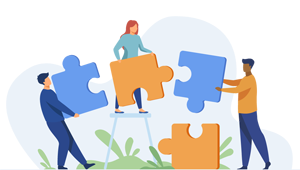
Partner withYKP
All young people, including YKP, have the right to participate in decisions that affect them. Working in partnership with YKP ensures that they have the opportunity to flag the challenges and barriers they experience, whilst also suggesting solutions that are feasible in their respective contexts. Models of programming that involve young people fall somewhere on the continuum of tokenistic engagement to meaningful leadership, depending upon the extent to which they provide freedom of choice, information, voice, responsibility and decision-making power to young people. Working toward meaningful leadership of YKP within programming requires building trust, acknowledging (and addressing) power differentials, two-way transferring of knowledge, and finding common ground.
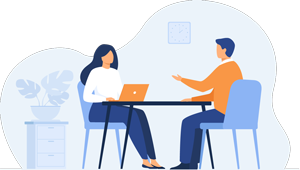
Learn the lingo
ln every language around the world, words are full of meaning, both positive and negative. Language can be used to marginalise or to create visibility, to discriminate or to empower. When working with YKP, it is essential to use language that reflects their humanity and reality. It goes without saying that YKP are human beings with multiple, overlapping identities that go beyond living with HIV, beyond sexual preferences, and beyond gender identity. The language we use should respect that and seek to centre their dignity and rights and, importantly, reflect YKP’s preferences.
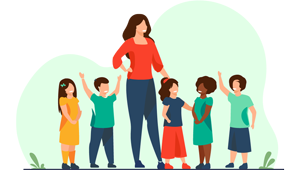
Understand the realities of YKP
Understanding the realities of YKP goes beyond knowledge of the facts and stats. It is also about the different layers of their lives, from friendships and families to education, laws and health. Rather than putting all YKP into one box, we must understand the different ways that they experience the world as well as the way that their YKP identities intersect and overlap with other identities, such as being young or of a particular ethnic group. YKP have needs for their lives beyond those related to their YKP identity, and programming should take this into serious consideration
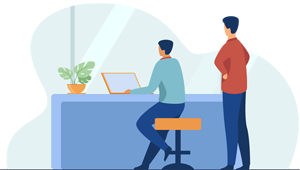
Review the human rights framework
All young people everywhere, including in the Asia Pacific, are rights-holders. This means that they are entitled to the protections and freedoms afforded in international, regional and national laws. Laws related to access to health services; discrimination and violence; sex and sexuality; drug use and harm reduction; sex work and much more all impact on the lives of YKP. It is crucial to have a firm grasp on the extent to which each country’s laws respect the rights of YKP before initiating a programme, both for advocacy purposes and to ensure the safety of everyone.
Programming
In the second part of the Guidelines, users will find various components related to programming. Whilst it is recommended that the Guidelines be read in its entirety to understand the ‘bigger picture,’ users may pick and choose the sections that are most useful to their current programmes if time is short.
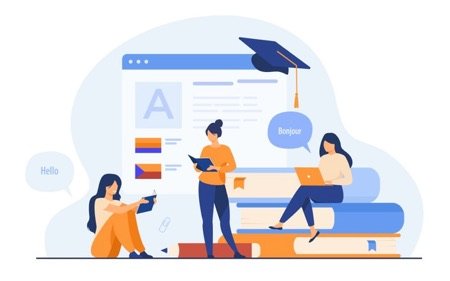
Adopt Key Principles
Principles are basic ideas or rules that explain how things work. Drawing on the perspectives of YKP around the Asia Pacific, this section describes essential principles for programming. Whilst the list is long, many of the principles are overlapping and mutually-reinforcing.
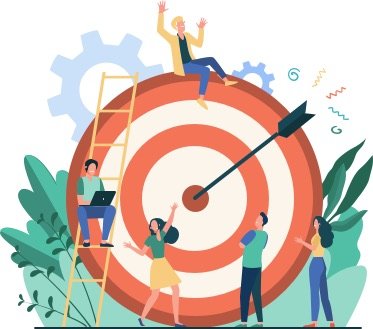
Develop Goals and Objectives
Goals help us think about the long-term vision to which our programmes contribute. It might be that we have an idea that all YKP have access to the sexual health services they need in our country, or that the environments within which they live are safe and secure. Objectives are bite-size and achievable within the context of our programmes; they represent what needs to happen to move toward achieving our goal. In this section, there is guidance on how to move toward rights-based goals and objectives in YKP programming.

Establish Supportive Systems and Management
YKP-led networks and organisations are often not formally registered in their countries and may need support with various administrative tasks. Donors, international organisations and partners working with YKP need to establish supportive systems to cover a range of needs including fiscal hosting,… building YKP's financial and management capacities, and generally transferring knowledge so that the YKP can, in future, apply for funds and take charge of their programming. Within YKP organisations, it is also essential to ensure that management systems and practices embody the principles described above and do not replicate existing power differentials between different groups of YKP.
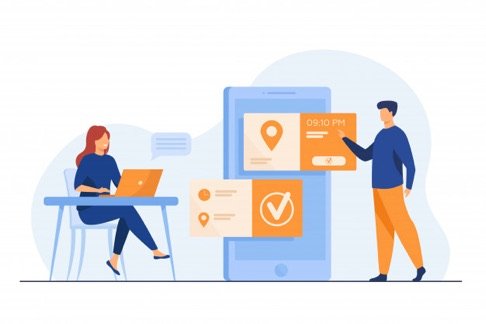
Design a Programme
This section is designed to help programmers and the agencies that fund them understand the various intervention areas that YKP believe are important. These lists of activities are not exhaustive by any means; instead, they are meant to start the ball rolling when designing a programme. The interventions/strategies listed were drawn from resources and organisations specific to the Asia Pacific, including Youth LEAD members. The Asia Pacific is an incredibly diverse region, and not all interventions will work in every context. Interventions should be chosen carefully based upon the work already completed to partner with young people; to identify the young key populations with which the programme will work; to pinpoint their most pressing needs, and develop programmatic goals and management structures. There are no one-size-fits-all models for programming for YKP in the Asia Pacific or anywhere else!
- Anti-discrimination, stigma and violence
- Policy and legal advocacy
- Social and community mobilisation
- Comprehensive sexuality education
- Services
- Accountability and transparency
- Safety and security
- Empowerment
- International norm-setting
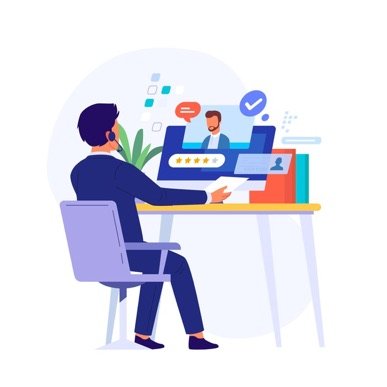
Monitor, Evaluate and Research
What gets measured, gets done. At the heart of this well-known saying is the truth that data can make visible previously-invisible issues and populations. No group recognises this more than YKP in the Asia Pacific who, time and time again, call for more and better data and research on their realities. This section provides inspiration from YKP’s research efforts across the region.
CASE STUDIES FROM ACROSS ASIA AND THE PACIFIC
Cebu on the Move
CebuPlus Association Inc, Philippines
The project was designed to bring HIV services to areas of Cebu that have not been reached or where these services are not regularly being offered. Specifically, it aimed to reach young key population groups in identified high-risk areas in Cebu which are either hard-to-reach or were overlooked by HIV programming at that time, including young MSM and young people who identify as trans*. The project was also implemented to mobilise young volunteers who were trained for peer education and HIV counselling and testing. In addition to reaching the target groups, the project succeeded in strengthening the partnership between the organisation and local government units for future interventions.
HIV Risk Reduction for young MSM and sex workers
ROLi, Philippines
ROLi is an HIV risk reduction programme that uses a self-assessment toolkit, workshops and peer group work to help adolescent MSM assess and reduce their risk behaviours as individuals and groups, using the support of their peers and service providers. The programme serves 6,000 young people in the Philippines, the majority of whom are boys aged 13–17 years. Approximately 80% are out of school, and 90% live in poverty. Almost all of them sell sex (sexually exploited) and use drugs, and almost all identify as straight (heterosexual).
Because young males who sell sex are highly stigmatised and difficult to reach, the programme uses several channels for outreach on a peer-to-peer basis. One-on-one interactions and group activities take place through contact with young people in their communities, including on the street and in areas where males seek sex with young males. They are given the opportunity to take a risk self-assessment on the spot, or to sign up for a workshop held at a partner health facility. Peer outreach workers also do outreach online through text messaging and through private chats with members of their social and peer networks.
Programme participants can join Facebook groups for moderated peer-to-peer discussions about behaviour change. Also, peer groups organise campaigns showcasing inspiring stories of change through forums, film viewings and discussions, and awareness-building activities take place around village fiestas, festivals, World AIDS Day and anti-drugs events. Government-run clinics that partner with ROLi also provide one-on-one counselling and other services.
The ROLi programme has been adapted to serve other young key populations, including young females who sell sex and young people who inject drugs.
(http://www.projectpage.info/my-river-of-life, WHO Technical brief on YP who sell sex)
Deaf Talks
Bahaghari Center for SOGIE Research, Education and Advocacy, Inc, Philippines
Deaf community members continue to be at a disadvantage when accessing services, including HIV services. In the Philippines, for instance, the gatekeepers to services are almost always hearing people who are limited by their lack of familiarity with Filipino Sign Language (FSL). The project Dea Talks has two components:
- The first was the development of public service announcements (PSAs) that provided basic HIV know-how in FSL. These PSAs dealt with myths and misconceptions surrounding HIV and testing.
- The second component was the provision of community-based HIV screening and testing trainings among deaf community members in three cities in the Philippines.
This project was designed to reach young deaf Filipinos belonging to key affected populations (KAPs), including LGBTQIAs, trans women, and men who have sex with other men and their female partners. By the end of the project, the PSAs had been viewed nearly 250,000 times, and 31 deaf Filipinos had been trained as HIV screeners/testers.
Drop-in Center for Women who Inject Drugs
Dristi, Nepal
Dristi is the only women-focused organisation focusing on harm reduction for people who use drugs in Nepal. Under this harm reduction programme, the organisation runs a drop-in centre, the main objective of which is to control the high risk of HIV infection amongst women who inject drugs. In total, the programme employs five female 'in-reach' workers, a director and a project officer. The in-reach workers are trained to provide information on a range of topics, including safer injecting, HIV, STIs, abscess management, overdose, harm reduction, gender-based violence, women's rights and SRHR. The programme also provides needle-syringe exchanges, HIV testing and referrals, legal aid for domestic violence, emergency shelter, and clothing and sanitary pad distribution. The programme has been able to meet a variety of needs of women who inject drugs in Nepal, including those that were previously hidden and hard-to-reach.
Human rights project
Blue Diamond Society, Nepal
Through its human rights work, the Blue Diamond Society (BDS) of Nepal is undertaking advocacy efforts with a range of stakeholders that impact on the rights of key populations, including young key populations. These groups include police, ministries, media and policy-makers. They do human rights violations documentation and have a training programme for the police. The project also provides platforms for YKP to get involved, including ‘Miss Pink’ and ‘Mr Gay Handsome’ competitions, as well as international advocacy opportunities.
Youth consultation on National AIDS Strategy
Fokus Muda, Indonesia
Fokus Muda promotes the participation of YKP. To develop an advocacy toolkit, the programme brought together YKP from different communities for a consultation. Participants were encouraged to identify the issues of greatest concern for them. For young people who inject drugs, the issues identified were the lack of specific programmes for them countrywide and of relevant harm-reduction programming. Outcomes and recommendations from the consultations were fed back to the participants and to other stakeholders, and formed part of the data used in advocacy about the government’s 2015-2019 National Strategic Plan on AIDS.
WHO et al. (2015) HIV and young people who inject drugs: A technical brief
Experiences of YKP with the New Funding Model of the Global Fund in Indonesia
Fokus Muda is the first national network of Young Key Populations in Indonesia initiated, as an informal group, in 2012. They did not have tangible plans or vision to engage in the Global Fund process, but they wanted to ensure that they were, at least, able to participate in country dialogues. They were introduced to the Global Fund Youth-Guide in pre-youth events during the International AIDS Conference 2014 in Melbourne, Australia organised by the PACT and Youth LEAD. The Youth Guide entitled "Making the money work for young people: a participation tool for the Global Fund to fight AIDS, Tuberculosis and Malaria for young activists and youth organisations 2014 " aimed to inform the young people on how they can engage and influence the Global Fund processes in countries. They found a tool to capacitate themselves through the guide, and then they explored further to increase their engagement.
They reached out to all the existing civil society networks on HIV, government agencies and technical organisations expressing their interest to participate in any Global Fund related activities. Also, they provided space to the members of the national key population networks and other stakeholder representatives in their preparatory trainings and meetings. This affirmative practise of engaging stakeholders in YKP events gradually created reliability towards Fokus Muda. Importantly, they also reached out to the CCM (Country Coordinating Mechanism) members who were representing the key populations and urged them to prioritise the issues and needs of YKPs in the CCM meetings. The immense effort from these CCM members and supporting voices from other key population networks had a significant impact on shaping the discussion priorities during the Global Fund processes of Indonesia in 2015.
Fortunately, Fokus Muda was already part of the National Strategic Plan on HIV from 2015-2019- the plan which became the basis of the Global Fund national proposal.
The team of Fokus Muda attended almost all the meetings, trainings, workshops, consultations related to the country dialogues. Consistency with the process was very important. By the time when the Global Fund proposal was submitted, Fokus Muda was already recognised as one of the key players with HIV and their proposed programs of LOLIPOP was integrated with the proposal for the scale-up. In addition, the member of Fokus Muda was nominated as the alternate CCM member.
Support for the start-up of YKP network
Myanmar
In late 2012, a short leadership course in Yangon brought together for the first time young key affected populations from across Myanmar. One of the workshop's results was the establishment of a working group designed to strengthen YKP in Myanmar; from there, nine active young people formed Myanmar Youth Stars. After that, Youth LEAD with support from UNESCO organised a NewGen training in Myanmar, which is a short leadership course for young people from key populations (YKP). After this workshop, Myanmar Youth Stars' (MYS) core members initiated a network. Formally organised in April 2013, MYS aims to effectively respond to the inequality, stigma and discrimination towards marginalised young people in Myanmar and who are at a higher risk of HIV infection. They create awareness on HIV and AIDS and safe sex and create opportunities for young key affected population for empowerment. MYS' members equally represent young males who have sex with males (MSM), transgender, people who inject drugs (PWID), male and female sex workers, and people living with HIV (PLHIV). MYS has had the support not only of UNESCO but of other regional agencies, such as APCOM.
Comprehensive support for young people who sell sex in Myanmar
Aye Myanmar Association (AMA)
AMA is a network of more than 2,000 female, male and transgender people who sell sex which engages in capacity-building and community mobilisation to advocate for their health and human rights. Working within a restrictive political environment, sex workers who are part of AMA have had to find innovative ways of reaching out to young people who sell sex to provide peer support and access to information and services, particularly about their health. AMA community mobilisation workers are trained to be particularly sensitive to the needs of young people and do not ask for any identifying information, such as their real names or ages when carrying out outreach.
Community mobilisation workers provide STI and HIV prevention tools and strategies, and links to sex worker-friendly health facilities for testing and treatment, as well as follow-up counselling and care for young people who sell sex who are living with HIV. In a context of stigma and discrimination, young people who sell sex are often reluctant to access services for fear of arrest or of being treated badly by health-care professionals. Follow-up care focuses on discussing any barriers to adherence to treatment within a safe and supportive environment, and community mobilisation workers offer to accompany young people to their clinic appointments.
AMA provides support to people who sell sex who are imprisoned, particularly ensuring that young people, who are often neglected or abandoned by their families, are given nutritional support while in prison. AMA also works to reconnect young people with their families and friends upon their release to ease the transition back into the community.
Healthy youth-adult partnership
Right Here Right Now, Pakistan
The Right Here Right Now programme is a five-year global strategic partnership that is active in ten countries (Kenya, Senegal, Uganda and Zimbabwe; Bangladesh, Indonesia, Nepal and Pakistan; Bolivia and Honduras), and the Caribbean sub-region. The programme undertakes concerted advocacy for a progressive and inclusive SRHR agenda and holds governments accountable for the implementation of comprehensive sexuality education and youth-friendly SRH services, including safe abortion. In each country, there is a platform of several different organisations that come together to advocate on SRHR. Each platform has a National Coordinator who is responsible for coordinating the efforts of all the organisations. The programme intentionally hired Coordinators under the age of 30 as the programme is youth-focused.
The youth-adult partnership between the Coordinator and the mix of youth-led and 'adult' organisations in the platforms varies in strength. The Pakistan platform had a Coordinator who was able to work well with the adults in the Steering Committee (the main decision-making body of the platform). This was because the adults appreciated the need for the advocacy platform to have a young face at the forefront to emphasise to policy-makers that young people could take charge of their own needs and rights. They supported the Coordinator and guided him when required. The Coordinator had been involved in SRHR programmes from before and was familiar with some of the adults, therefore knew how to work with them and present his suggestions in a way that they were taken seriously. The value of building a rapport between people is important in building a healthy youth-adult partnership.
Monitoring YFS Availability
Association of People Living with HIV, Pakistan
The Association of People Living with HIV in Pakistan developed an assessment tool intended to review the quality and readiness of services for young people, from their perspective. The tool included the following domains: administrative, geographic, economic, access, physical structure, variety of services, staffing, interpersonal relations, type of information provided, and how the information is provided. This has been a cross-sectional facility-based assessment, applying a structured questionnaire. Data were collected from 32 participants, involving clients, as well as service providers (health facility staff) from three different community-based organisations. A summary of the results is shown in the graph below.

NewGen (New Generation Leadership Training manual)
A regional consultation of YKP in January 2011 highlighted and emphasised low capacity and few opportunities for YKP's to advocate for change and influence the HIV response. In response, the 5-day interactive course was developed by Youth LEAD, with support from Asia-Pacific Interagency Task Team for YKP. Youth LEAD drew on academic experts in health education, participatory training methodologies, young training experts, YKPs and UN partners to develop a comprehensive and engaging course.
The first ToT (training of the trainers) for the NewGen course was completed in September 2012 for YKP leaders from Indonesia, Myanmar, Sri Lanka and the Philippines. Subsequently, the training was rolled out in all of the participating countries in the same year. Fokus Muda and Myanmar Youth Star were initiated as organisations as the result of NewGen. The NewGen manual was adopted by the Indonesia National AIDS Council as the national leadership manual for YKP, followed by various roll outs for all KP. The individual rollouts for young people who inject drugs, sex workers, MSM and TG took place in 2013.
With successful roll outs, the manual was revised to incorporate the feedback from participants, and two components on Sexual Reproductive Health and Strategic Information were added. The second ToT took place with the revised manual in November 2013 for YKP leaders from Bangladesh, Brunei, Darussalam, Cambodia, China, Fiji, Nepal and Thailand. The roll outs took place in all the ToT participating countries except Fiji.
NewGen is not simply a one-off training but, rather, a movement to empower YKPs throughout the Asia Pacific region. It has fostered an environment of support, by which YKPs can organise themselves for advocacy. It is a hallmark of a participatory approach, given that the course was designed with leadership and direction from YKPs, who was involved as authors and facilitators.
Organisational Development and Change Manual and Assessments
Youth LEAD and UNDP, Being LGBTI in Asia and the Pacific
Organisations that work with complex and sensitive issues such as HIV and key populations must be dynamic and responsive, and sometimes their advocacy work can be incredibly challenging. Young people working in advocacy are acknowledged for their creativity and resilience, however, to ensure sustainability and accountability organisations must also abide by specific structures, mainly when responsible for the management of funding provided by donors.
In 2019, the 4Youth Consortium, comprising Youth LEAD, Youth RISE, Y+ Global and Y-Peer Asia Pacific Centre conceptualised the idea for a tool or a guide to help, in particular, youth-led organisations think about organisational development and capacity building. Youth-led and youth-serving organisations often struggle with day-to-day operations; a lack of governance structure and/or poor organisational management can create challenges in organisational development and growth. Therefore, it's important to build and strengthen structural foundations and identify key areas for change. Although for a lot of youth organisations, passion and expertise are evident, they may need to learn further how to run the 'business side' of their advocacy work to realise their full potential.
The Organisational Development and Change (ODC) manual was developed in 2020 by Youth LEAD to guide youth-led organisations through the development and growth of their organisations with tools, workable and accessible frameworks, in a language that is youth-friendly and easy to understand. The manual is divided into two streams of learning; how to develop an organisation and how to assess an organisation? In summary, the manual guides readers through four steps; identifying the structural needs of an organisation, reviewing existing organisations complements, setting the level of dried change and how to turn assessment into action. The manual is targeted explicitly at grassroots, smaller youth-led organisations, those working at the community/local or national level, registered or fiscally hosted, and volunteer-based groups.
In 2020, Youth LEAD was awarded funds by UNDP, Being LGBTI in Asia and the Pacific to support the country-led assessment of three of Youth LEAD's network partners; Myanmar Youth Stars, Youth LEAD Mongolia and Ya_All, India. The internal assessments allowed organisations to reflect on their foundations, the structure, organisational management but also promoted cross-sharing of findings between network partners. The process encouraged youth organisations and networks to reflect on their strengths and weaknesses, and the action plans based on the ODC assessments by each organisation were geared towards enhanced leadership and sustained advocacy for youth and YKP- led organisations.
To access the Organisational Development and Change manual visit youthleadap.org/resources
Establishing an MSM/TG network to reduce HIV vulnerability in Malaysia
From late 2011 till the end of 2017, PT Foundation Malaysia (a community-based organisation working with key populations) focused on mobilising and building the capacities of MSM and TG groups in different parts of the country. The idea was to bring informal groups of MSM and TG into a national network that would focus on fighting for their sexual health and rights. The project provided coaching and mentoring in organisational diagnosis, strategic planning, and proposal writing, as well as financial assistance to keep up the momentum for organisational growth and sustainability.
As more community members became aware of their human rights through the SOGI Workshops and Training on Networking and Advocacy, they increasingly expressed their need to work together. Multi-Stakeholder Forums provided national and state / city-wide platforms for discussions among key populations and relevant stakeholders, such as the Government, religious and police authorities, among others.
Taiwan’s HIV/AIDS Prevention and Control manual
Center for Disease Control
Taiwan's government has issued a manual for health-care providers who work with PLHIV under the age of 20. The manual provides recommendations to providers and social workers regarding parental notification; these include:
● Youth under age 14 require parental involvement and legal representation.
● Youth above 14 can be provided with counselling without parental consent to identify whether they should proceed to inform parents or not, and how to proceed to treatment.
● If the young person decides to disclose her/his HIV status to their parents, the service provider will assist disclosure to the young person's parents, and provide support in school life and career.
If not informing the parents, the service providers will conduct an assessment to consider the impact of non-disclosure of treatment to the young person; follow-up and monitor treatment every three months, as well as provide reinforcement to disclose with parents.
Using the UPR to hold governments to account for young people
Right Here, Right Now Coalition, Bangladesh
Bangladesh’s human rights record was reviewed by the Human Rights Council’s 30th session of the Universal Periodic Review (UPR) in May 2018. During such sessions, other countries make recommendations to Bangladesh on how to improve the respect, protection and fulfilment of human rights. Bangladesh’s representatives to the UPR can reject or accept the recommendations. Amongst the recommendations accepted by Bangladesh were: 1) a recommendation from Belgium to ‘put an end to the practices of early marriages and the payment of dowries by implementing laws prohibiting such practices’ and 2) a recommendation from Uruguay to ‘continue increasing efforts to combat all types of violence against women and girls, and eradicate discriminatory practices and measures against them, guaranteeing the full exercise of their rights, including those related to sexual and reproductive health.’ Advocates at the national level can use these accepted recommendations to hold their government to account.
Young people from Bangladesh also got involved in the May 2018 UPR. The Sexual Rights Initiative (SRI) collaborated with Bangladesh's Right Here, Right Now (RHRN) platform, which includes several youth-led organisations, to develop a submission to the Universal Periodic Review highlighting areas of rights violations. The submission focused on three key areas of violations against young people in Bangladesh: 1) the absence of comprehensive sexuality education in their schooling; 2) the lack of access to SRH services, including safe menstrual regulation that caters specifically to young people; and 3) the lack of inclusive national policies on SRHR for people with diverse sexual orientations and gender identities.
Submission Form for Case Studies
The YKP Programming Guideline was developed to highlight the absence of comprehensive YKP HIV prevention, treatment, and other health-related services and programming. Some case studies are not scientifically tested interventions, nor does it provide instructions to design specific interventions. The initiatives that we collect are part of the overall documenting of best practices to support YKP advocacy.
We call for case studies on different initiatives, interventions, advocacy, and information on services to enrich our database and strengthen the YKP Programming Guideline. Case studies will be reviewed every three months and if accepted, will be published on the website. We may be able to support some case studies financially, to bring case studies to scale if the funding permits.

